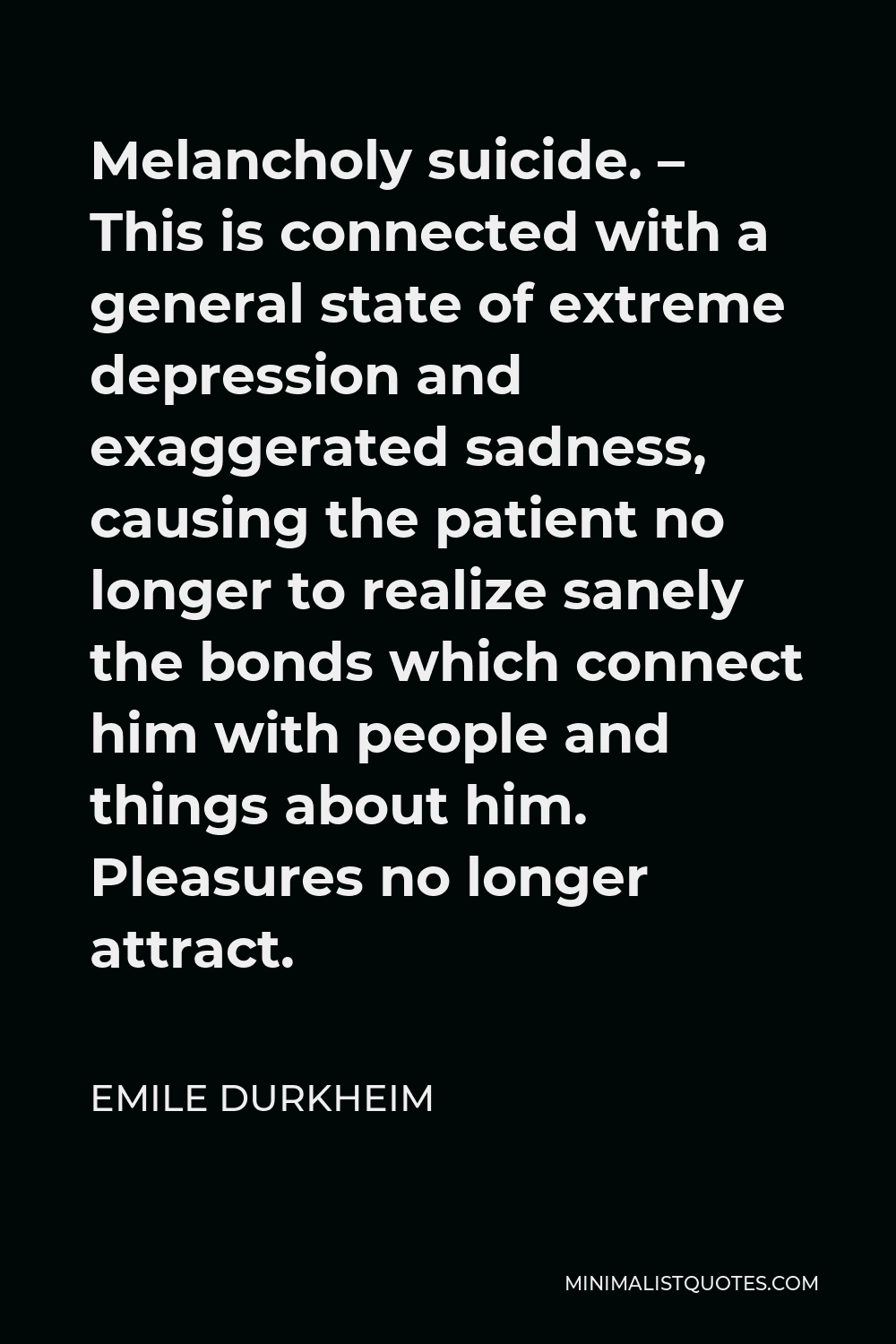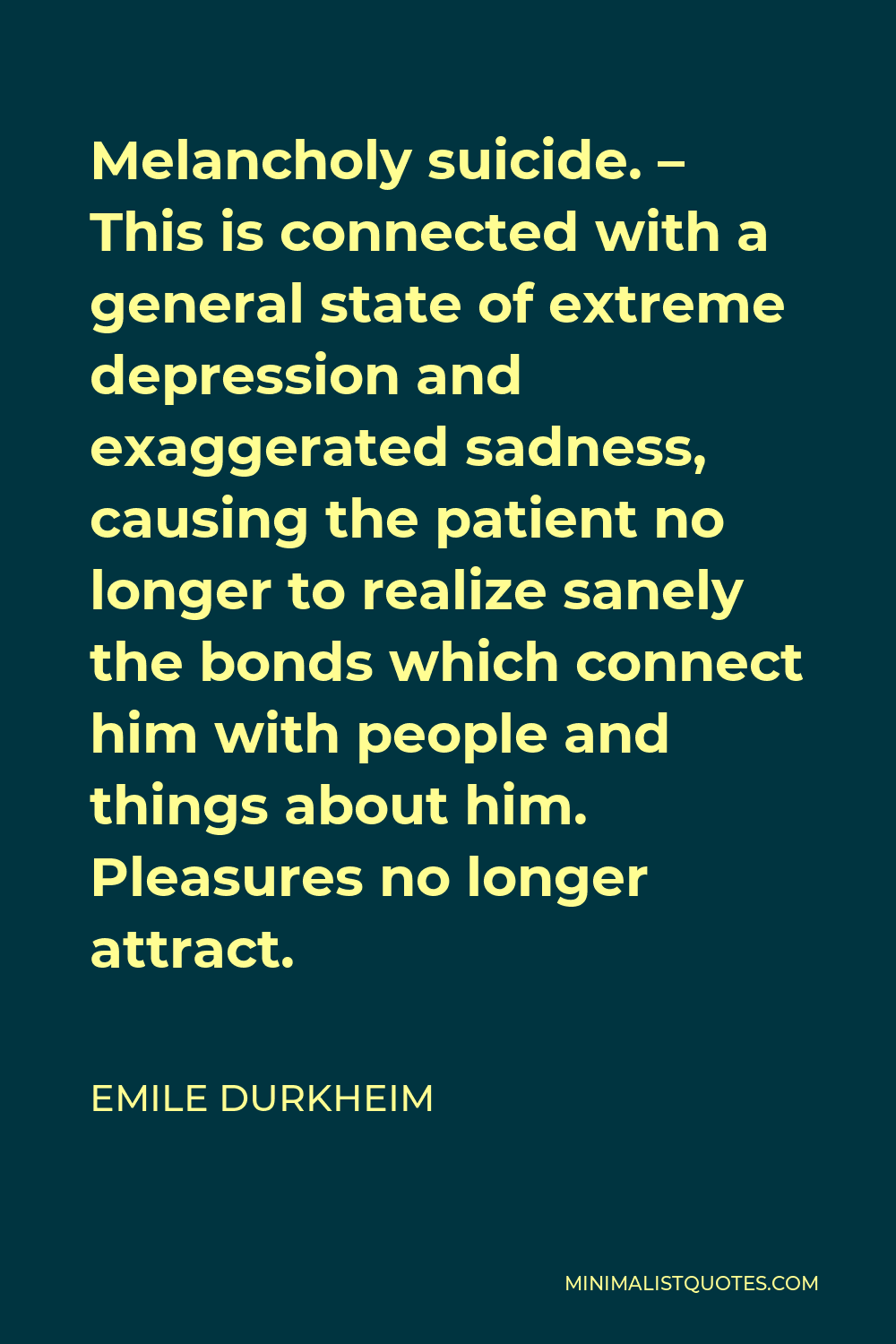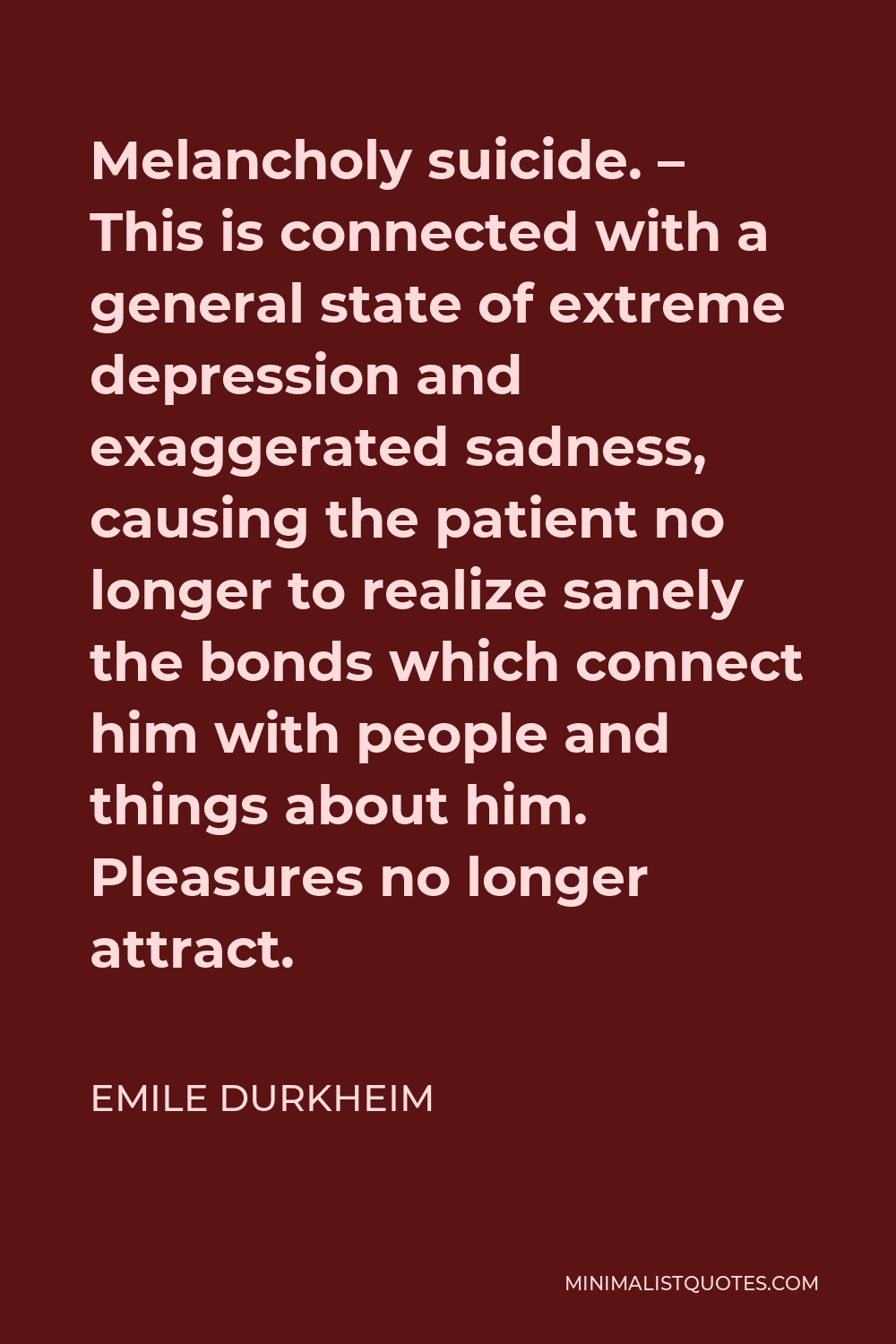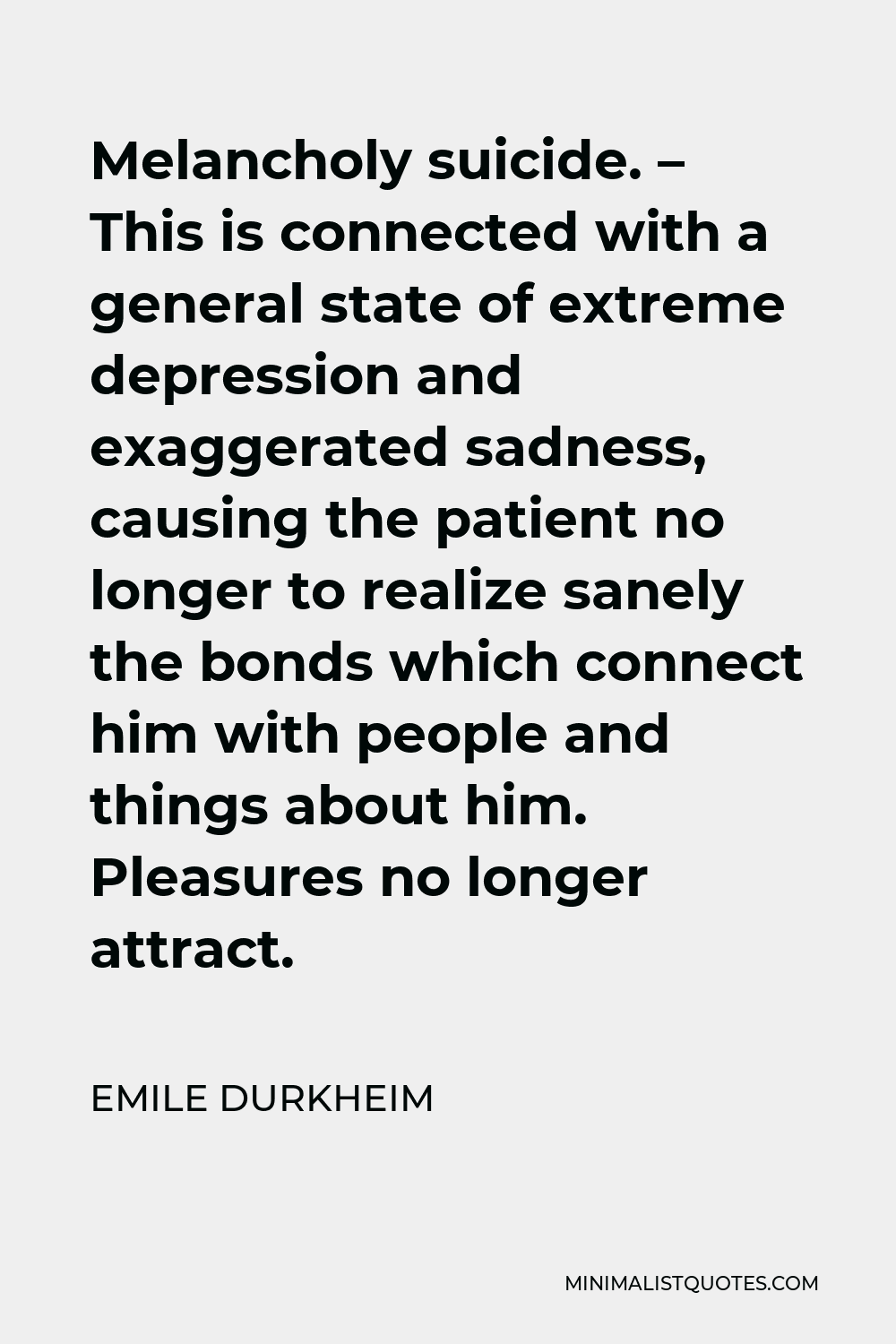Socialism is not a science, a sociology in miniature: it is a cry of pain.
EMILE DURKHEIMMelancholy suicide. – This is connected with a general state of extreme depression and exaggerated sadness, causing the patient no longer to realize sanely the bonds which connect him with people and things about him. Pleasures no longer attract.
More Emile Durkheim Quotes
-





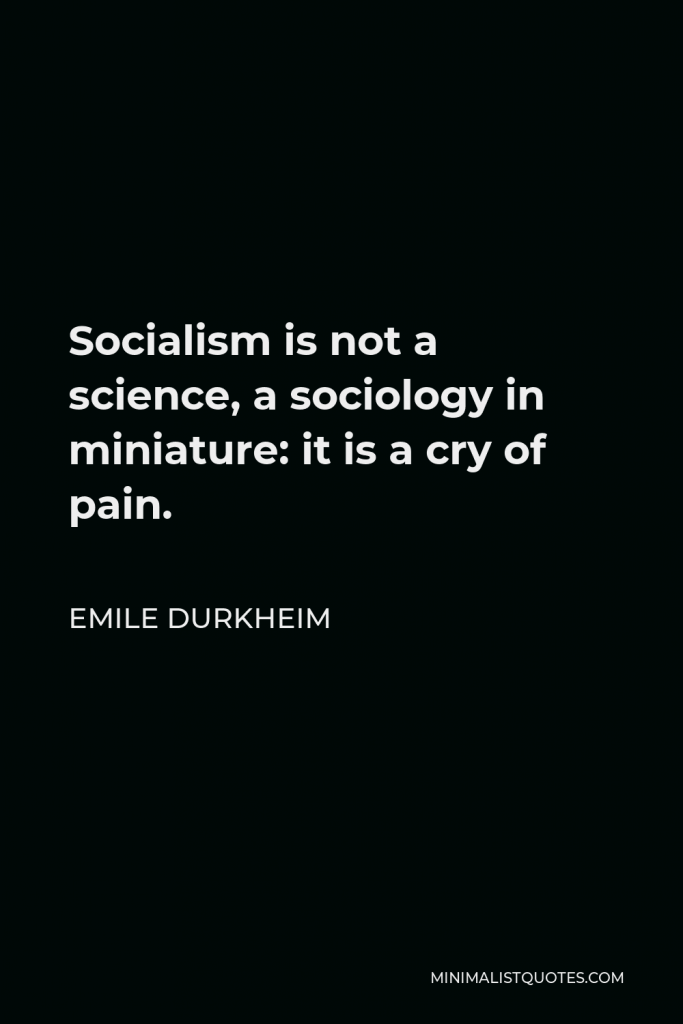

-







A monomaniac is a sick person whose mentality is perfectly healthy in all respects but one; he has a single flaw, clearly localized. At times, for example, he has an unreasonable and absurd desire to drink or steal or use abusive language; but all his other acts and all his other thoughts are strictly correct.
EMILE DURKHEIM -





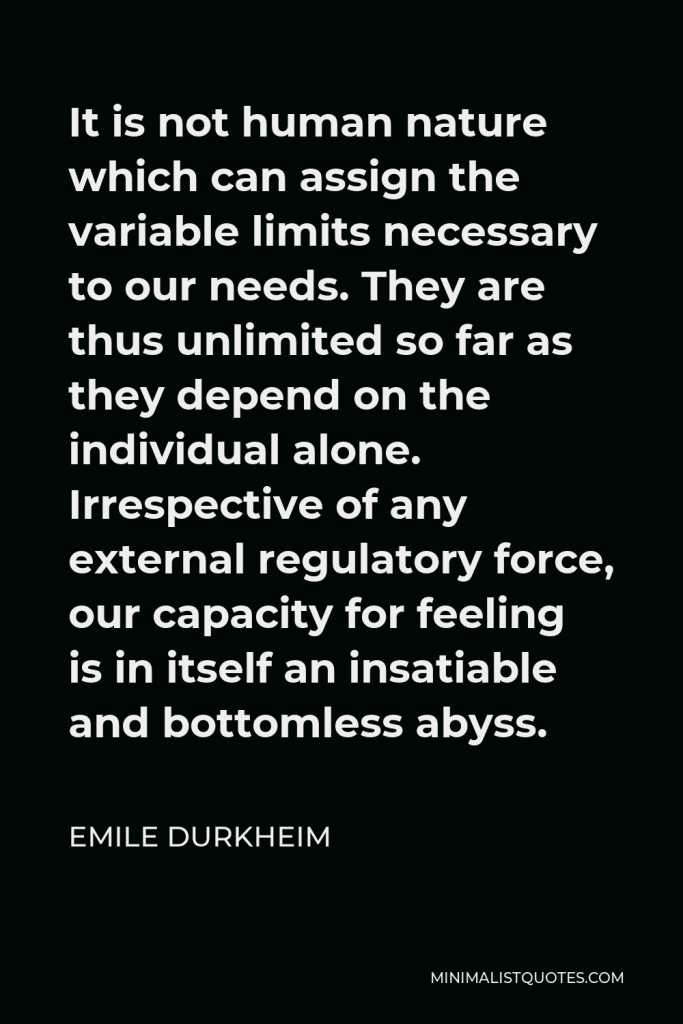

It is not human nature which can assign the variable limits necessary to our needs. They are thus unlimited so far as they depend on the individual alone. Irrespective of any external regulatory force, our capacity for feeling is in itself an insatiable and bottomless abyss.
EMILE DURKHEIM -







When man discovered the mirror, he began to lose his soul.
EMILE DURKHEIM -







We do not condemn it because it is a crime, but it is a crime because we condemn it.
EMILE DURKHEIM -







There is no sociology worthy of the name which does not possess a historical character.
EMILE DURKHEIM -





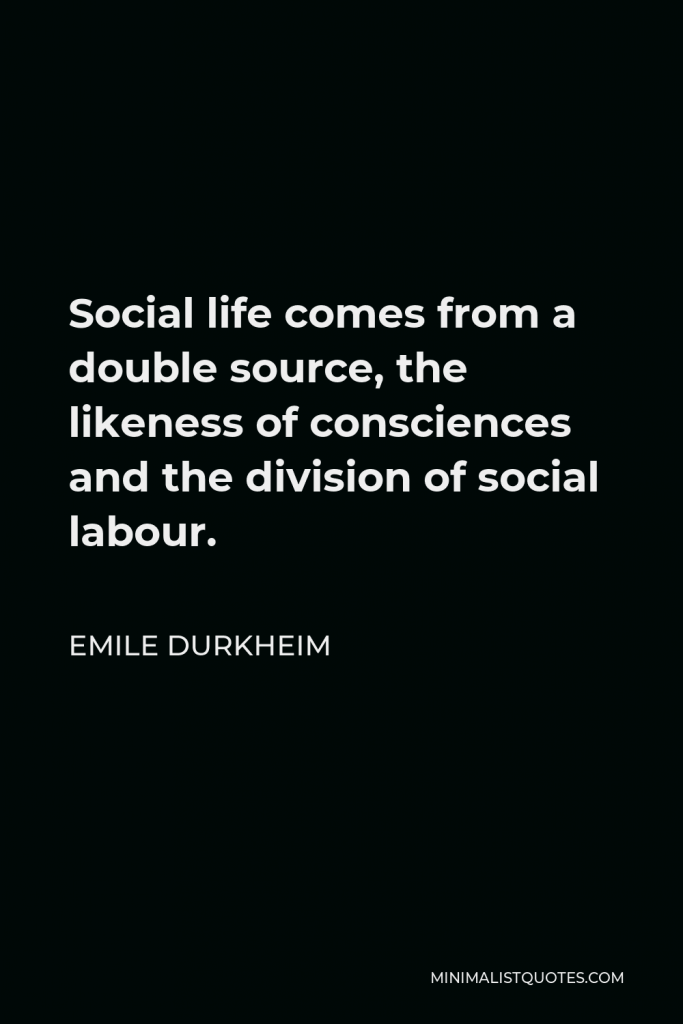

Social life comes from a double source, the likeness of consciences and the division of social labour.
EMILE DURKHEIM -





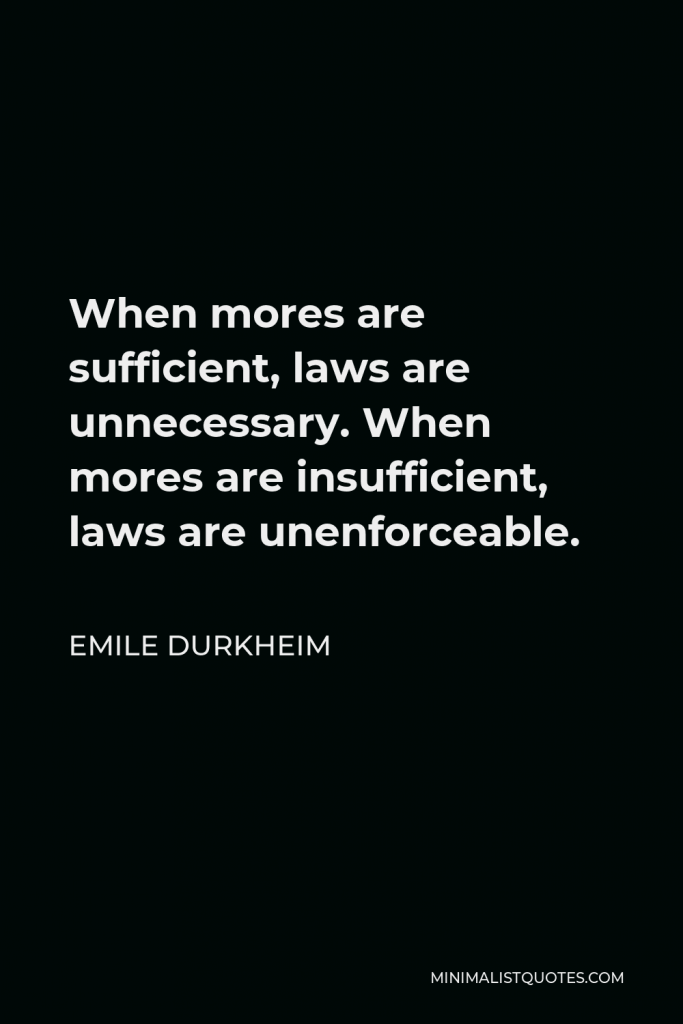

When mores are sufficient, laws are unnecessary. When mores are insufficient, laws are unenforceable.
EMILE DURKHEIM -





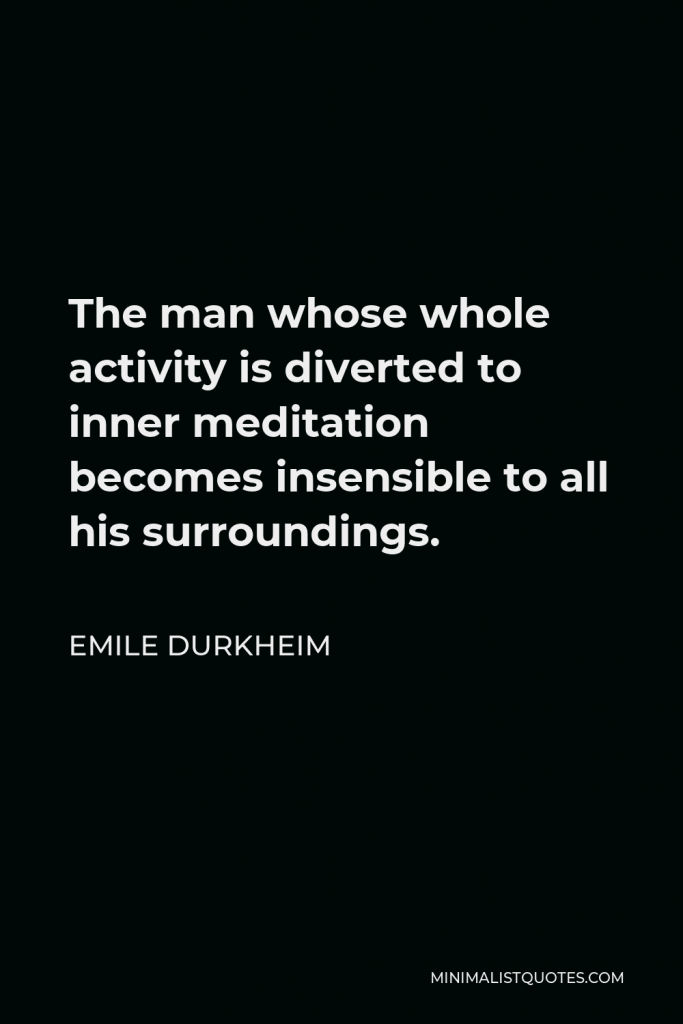

The man whose whole activity is diverted to inner meditation becomes insensible to all his surroundings.
EMILE DURKHEIM -





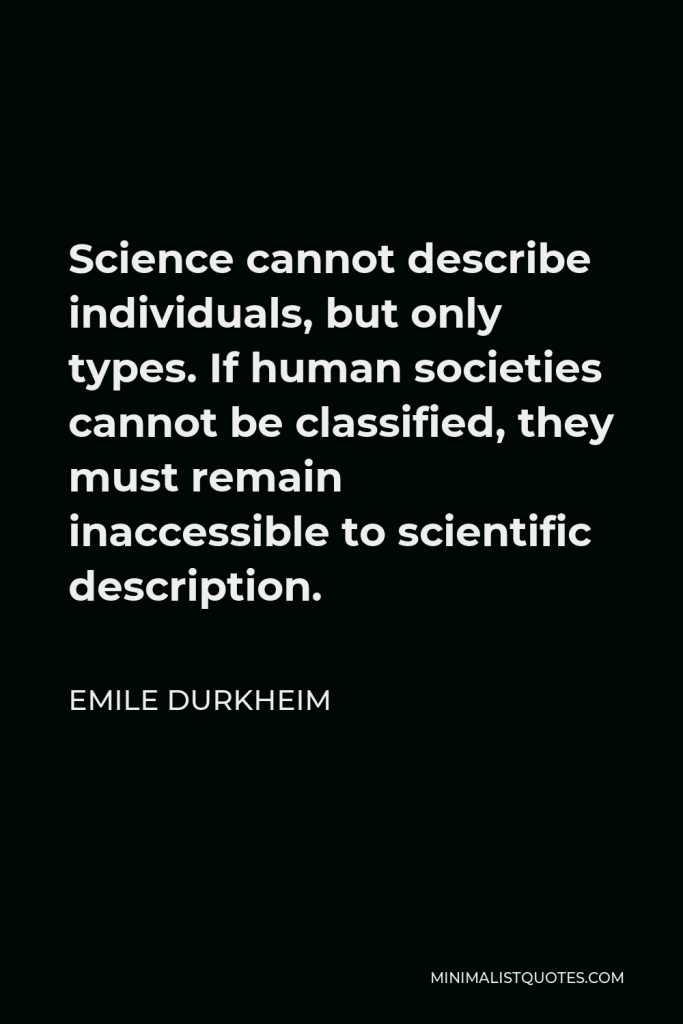

Science cannot describe individuals, but only types. If human societies cannot be classified, they must remain inaccessible to scientific description.
EMILE DURKHEIM -







The wise man, knowing how to enjoy achieved results without having constantly to replace them with others, finds in them an attachment to life in the hour of difficulty.
EMILE DURKHEIM -







A religion is a unified system of beliefs and practices relative to sacred things, that is to say, things set apart and forbidden-beliefs and practices which unite into one single moral community called a Church, all those who adhere to them.
EMILE DURKHEIM -





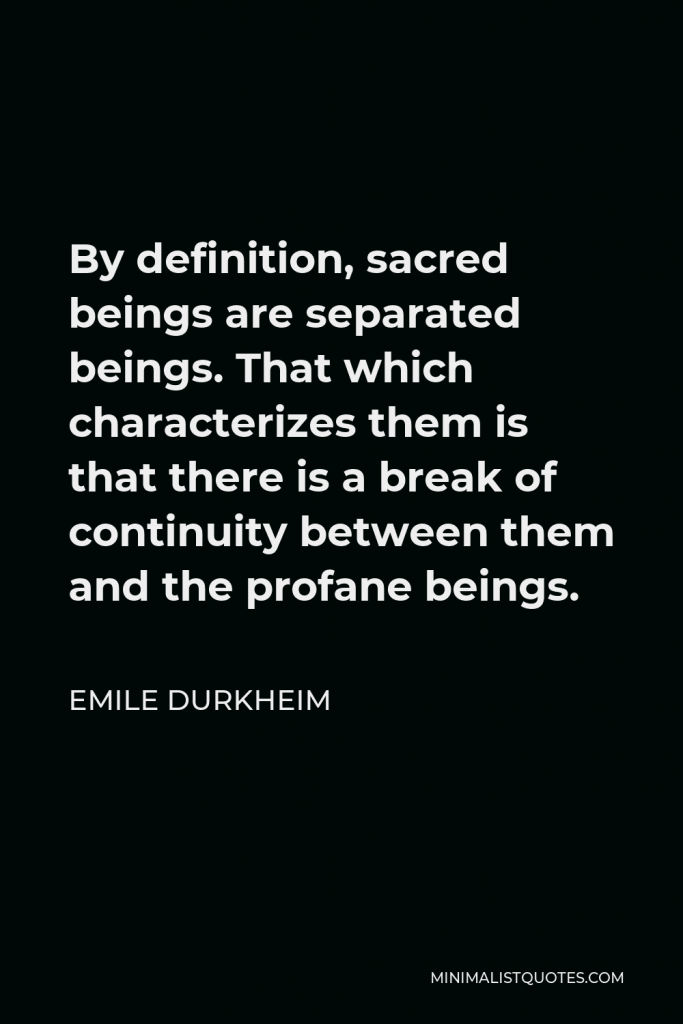

By definition, sacred beings are separated beings. That which characterizes them is that there is a break of continuity between them and the profane beings.
EMILE DURKHEIM -





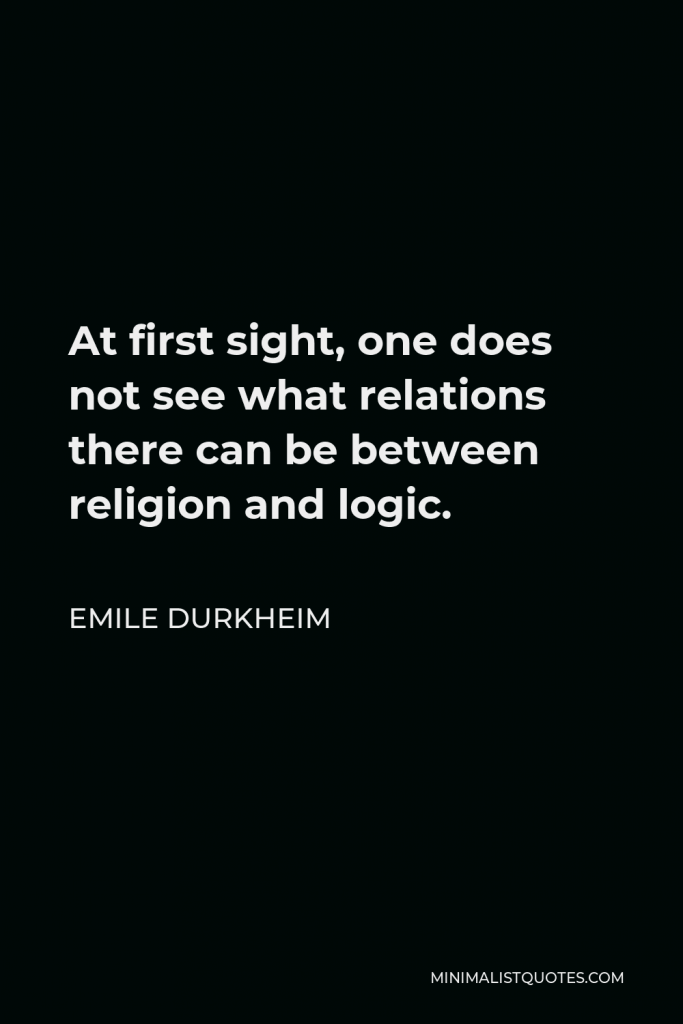

At first sight, one does not see what relations there can be between religion and logic.
EMILE DURKHEIM -





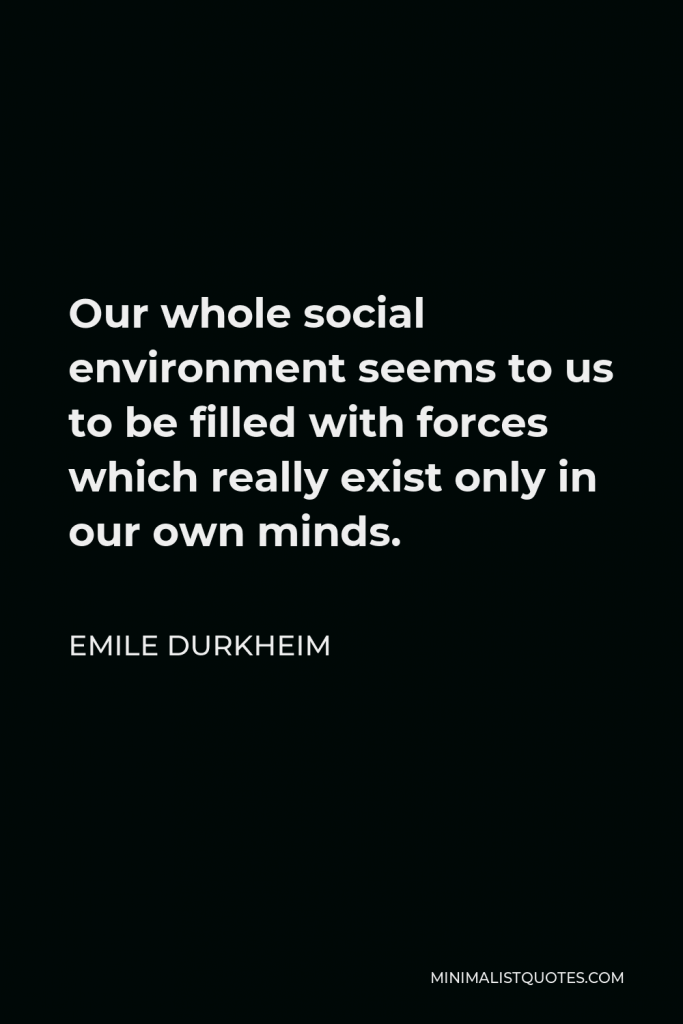

Our whole social environment seems to us to be filled with forces which really exist only in our own minds.
EMILE DURKHEIM -





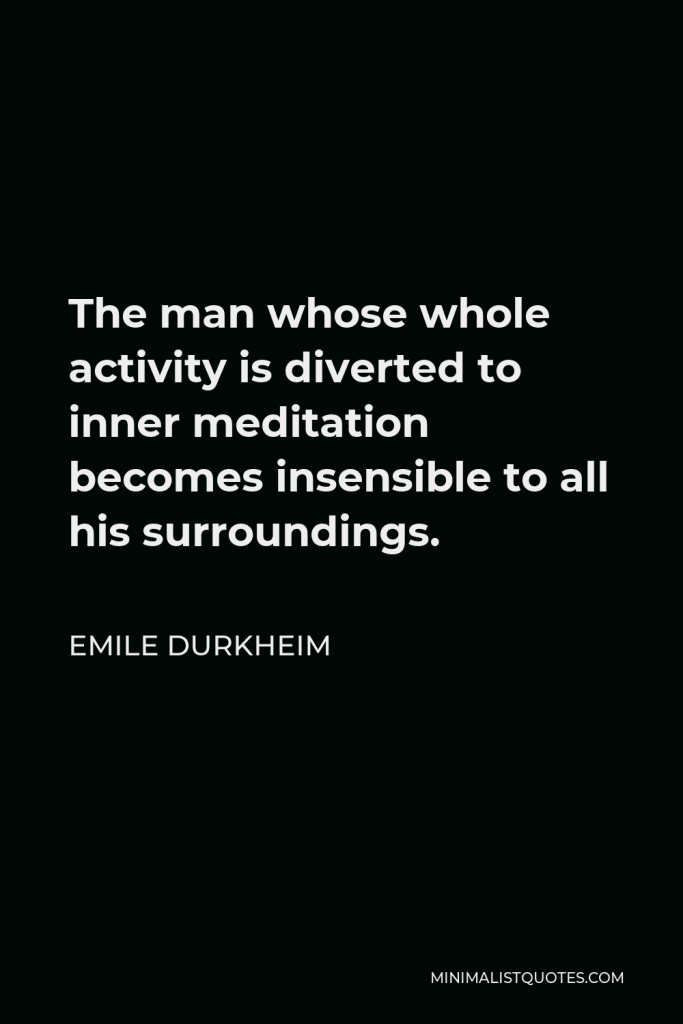

The man whose whole activity is diverted to inner meditation becomes insensible to all his surroundings. His passions are mere appearances, being sterile. They are dissipated in futile imaginings, producing nothing external to themselves.
EMILE DURKHEIM
